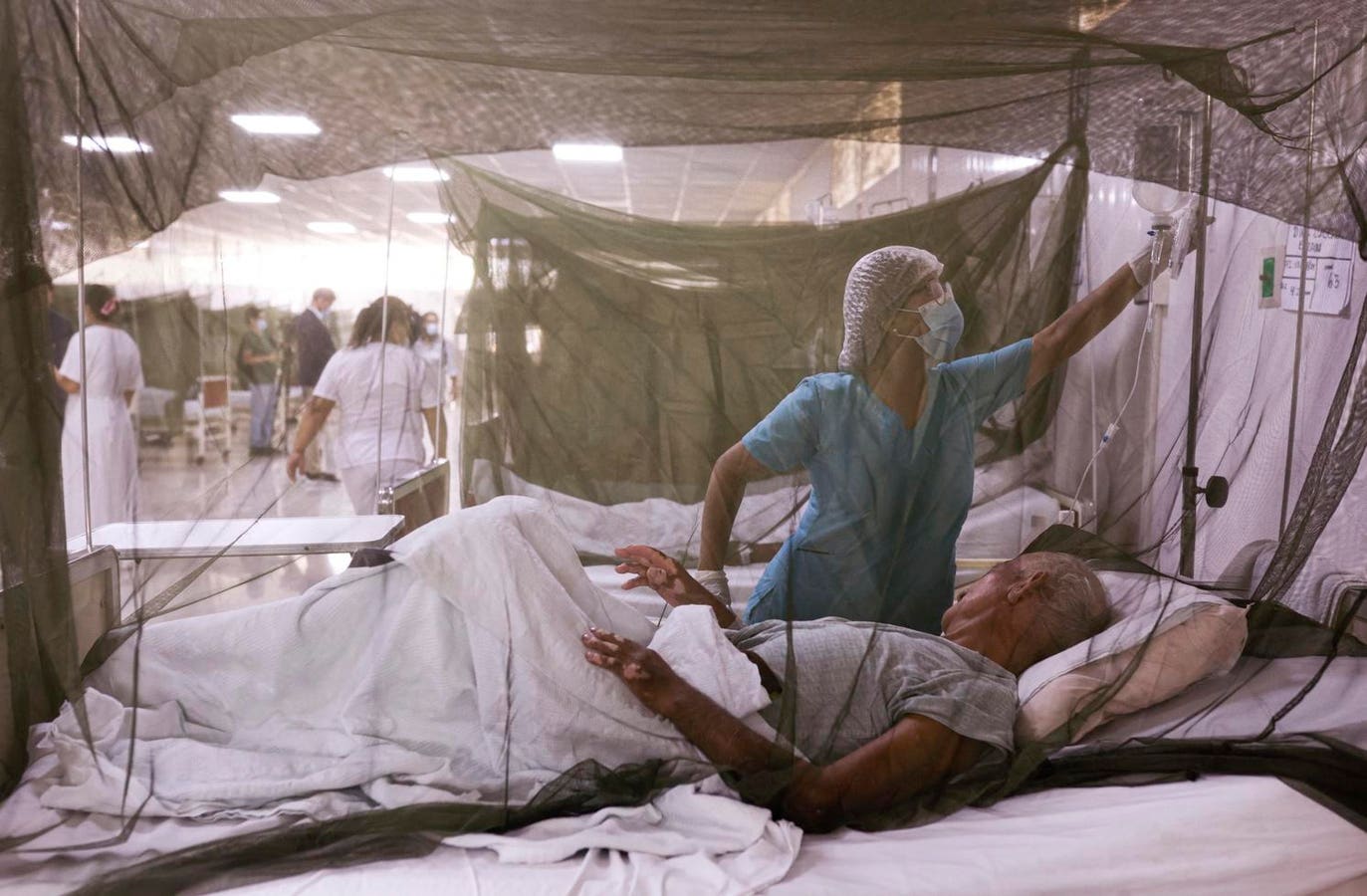Health
Dengue virus linked to increased risk of depression and sleep disorders

A nurse cares for a dengue fever patient at Sergio Bernales National Hospital in … [+]
After surviving a dengue infection, people may be at long-term risk for depressive disorders, compared with those who did not contract the mosquito-borne disease, according to a recent study published in PLOS neglected tropical diseases. The dengue virus is also linked to a higher short-term risk of anxiety and sleep disorders.
“Among those hospitalized for dengue, the risk of all three mental health conditions was higher, especially in the first three months after infection. These findings highlight the potential impact of dengue infection on mental health and underscore the importance of further investigation into the mechanisms underlying these associations,” the authors wrote in the study. “Proposed mechanisms suggested that brain inflammation may alter the levels of serotonin neurotransmitters, potentially leading to the development of mood disorders.”
“Reports from Sri Lanka and India have shown that dengue patients had higher depression scores, anxiety scores and stress scores than the control group and that depression in the dengue group occurred at approximately 15% during a follow-up of 6 to 24 months after dengue infection; The anxiety and depressive symptoms correlated with the severity of dengue infection,” the authors said. “Additionally, long-term follow-up studies indicate that certain individuals may experience persistent symptoms, including headaches, rashes and chronic fatigue, well beyond the acute phase of a dengue infection.”
Lead author Hsin-I Shih and team from National Cheng Kung University and National Health Research Institutes in Taiwan analyzed the medical records of 45,334 patients diagnosed with dengue between 2002 and 2015. The team compared the mental health status of these patients after recovery with 226,670 people who had never been infected with the dengue virus.
They noted that the dengue patients were much more likely to develop depressive disorders more than twelve months after infection. “In addition, there was a slight increase in the risk of sleep disorders within three to 12 months after dengue infection, while no increased risk of anxiety disorders was reported during the study period,” the authors noted. “Dengue virus-induced encephalopathy, which occurs during the acute phase of the disease, may manifest as reduced sensitivity, cognitive impairment, seizures and personality disorders, including sudden mania, depression, anxiety, psychosis and agoraphobia.”
“The neurotoxic inflammation caused by cytokines has been found to reduce tryptophan levels, the amino acid precursor of serotonin, which positively correlates with the severity of depressive symptoms in patients,” they explained.
Another reason why mental health problems can manifest after a serious viral infection such as dengue is that patients tend to experience unexpected life disruptions, especially if they are hospitalized. “Hospitalization can profoundly disrupt daily routines. Amid such upheavals, individuals face exceptional stresses and may succumb to debilitating psychological problems such as depression, anxiety and insomnia,” the authors add. “Within Taiwan’s universal healthcare system, dengue patients receive comprehensive care designed to manage their condition during and after infection, often at minimal cost. However, despite the high quality of care provided, these individuals may still experience significant psychological distress, potentially leading to an increased risk of developing psychological disorders following their infection.”













